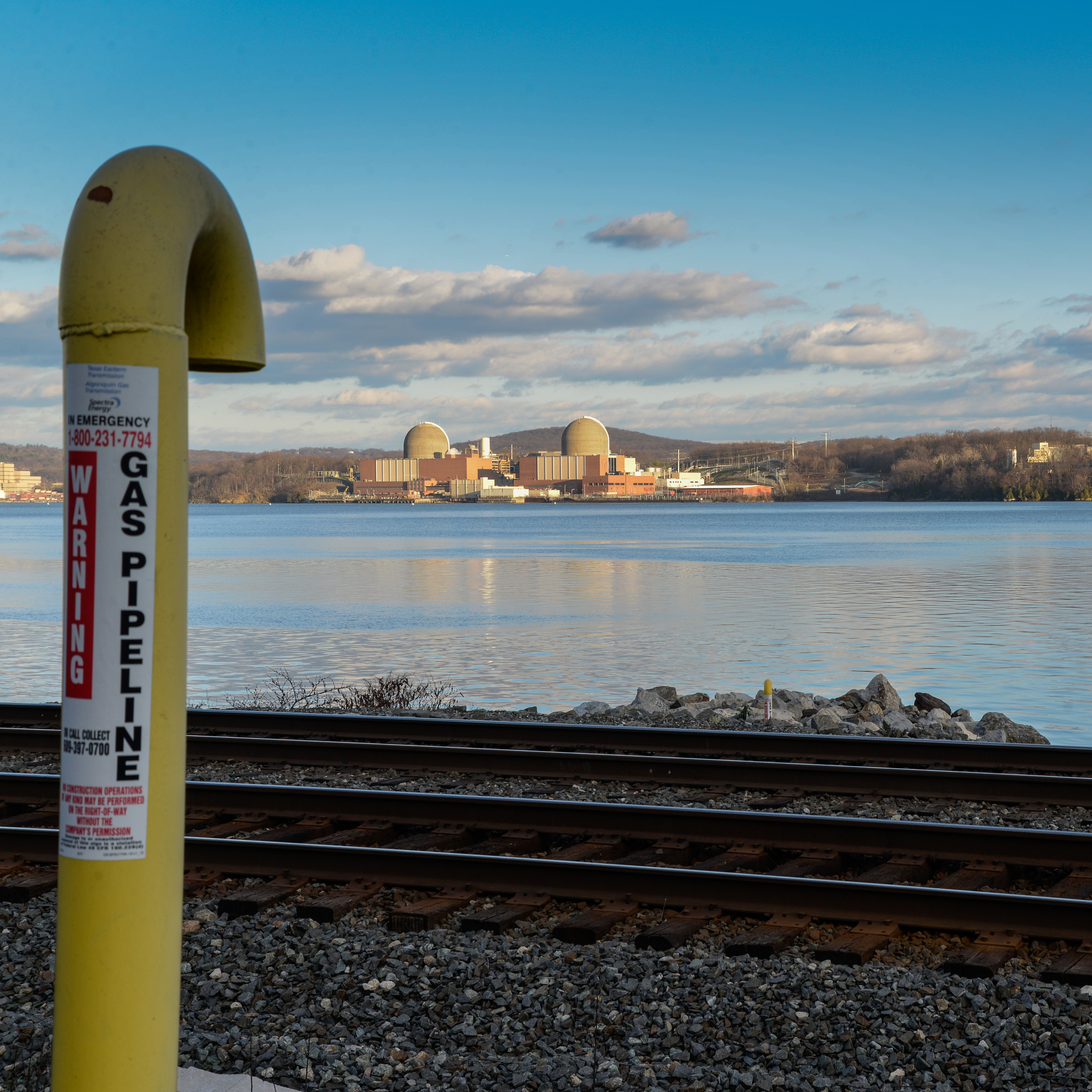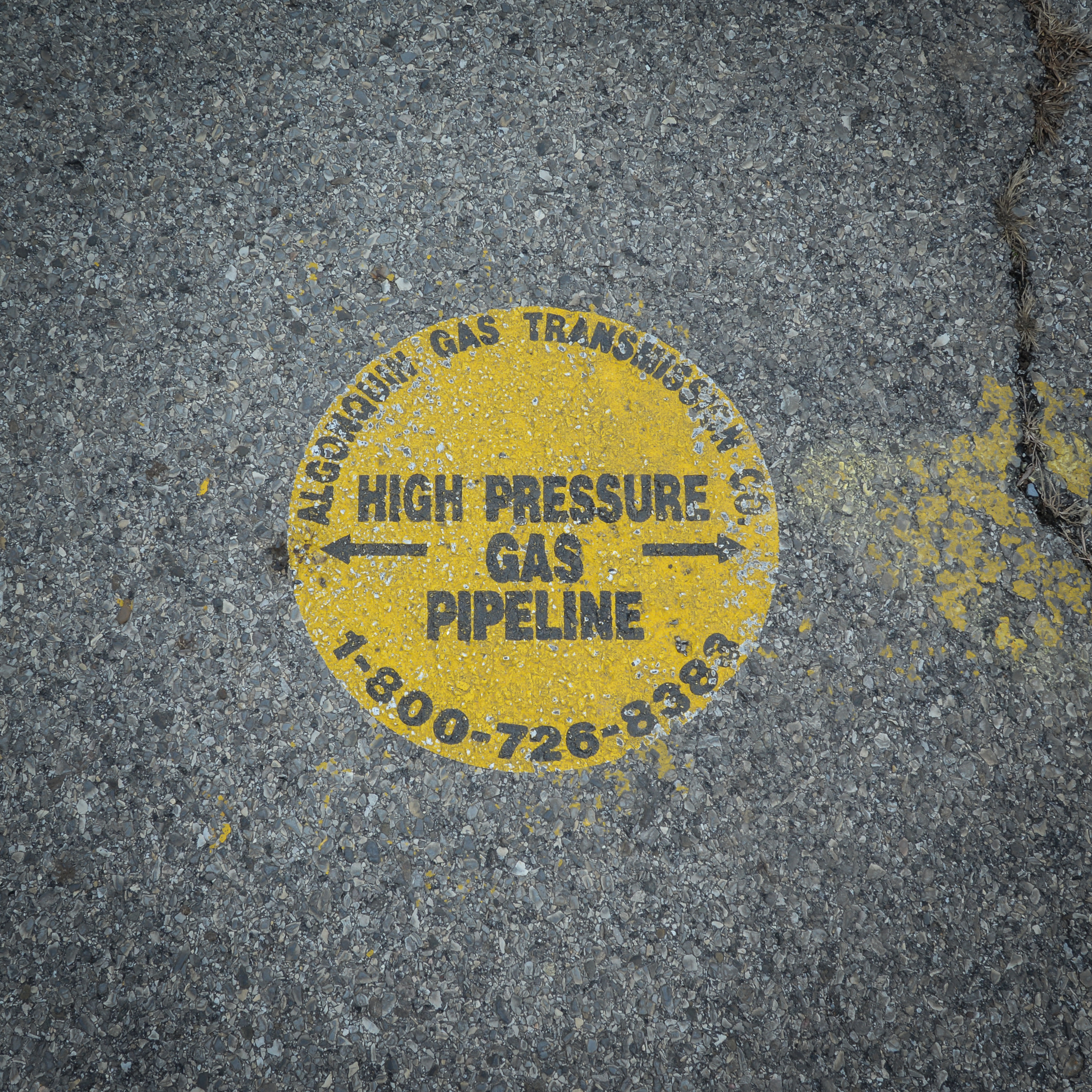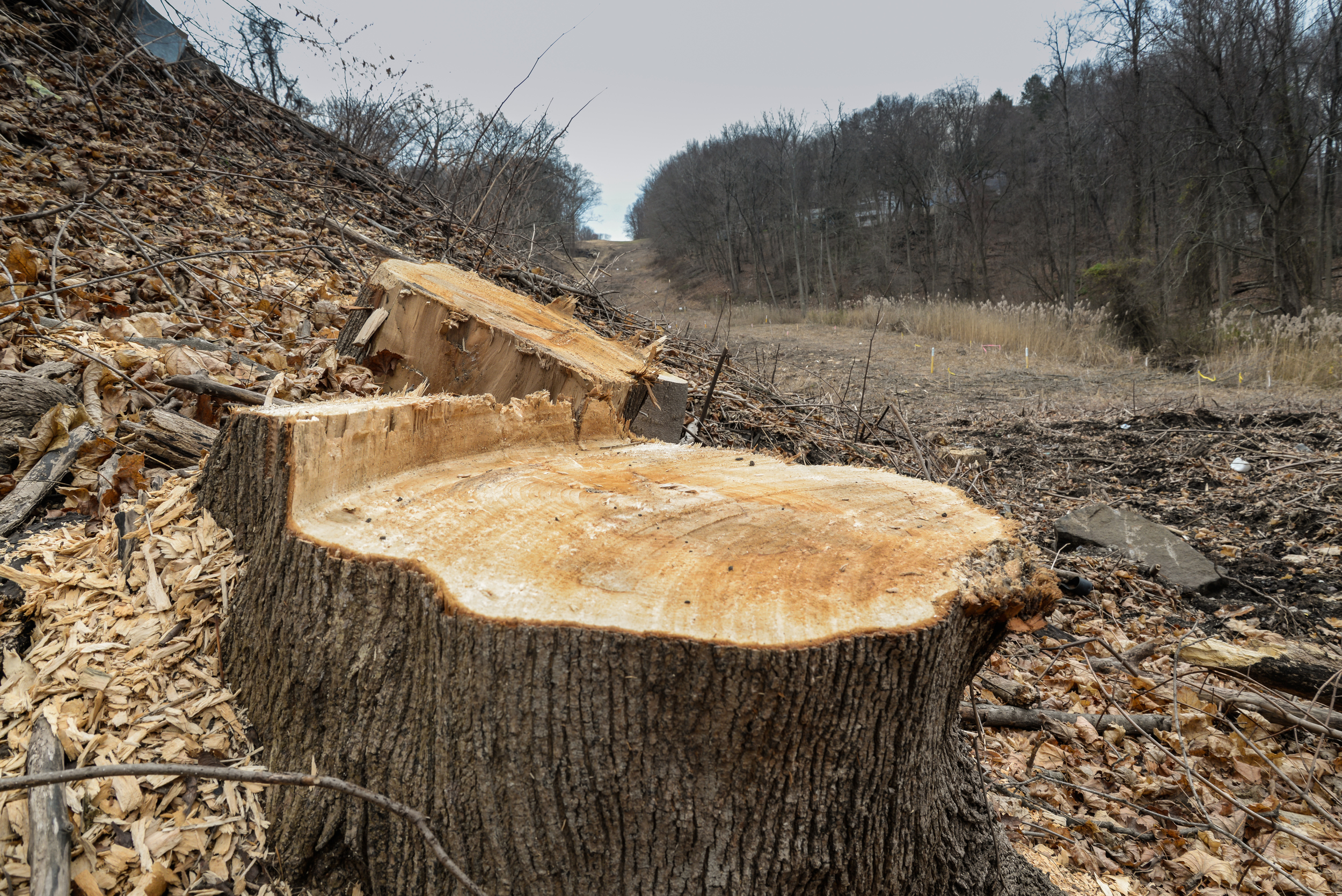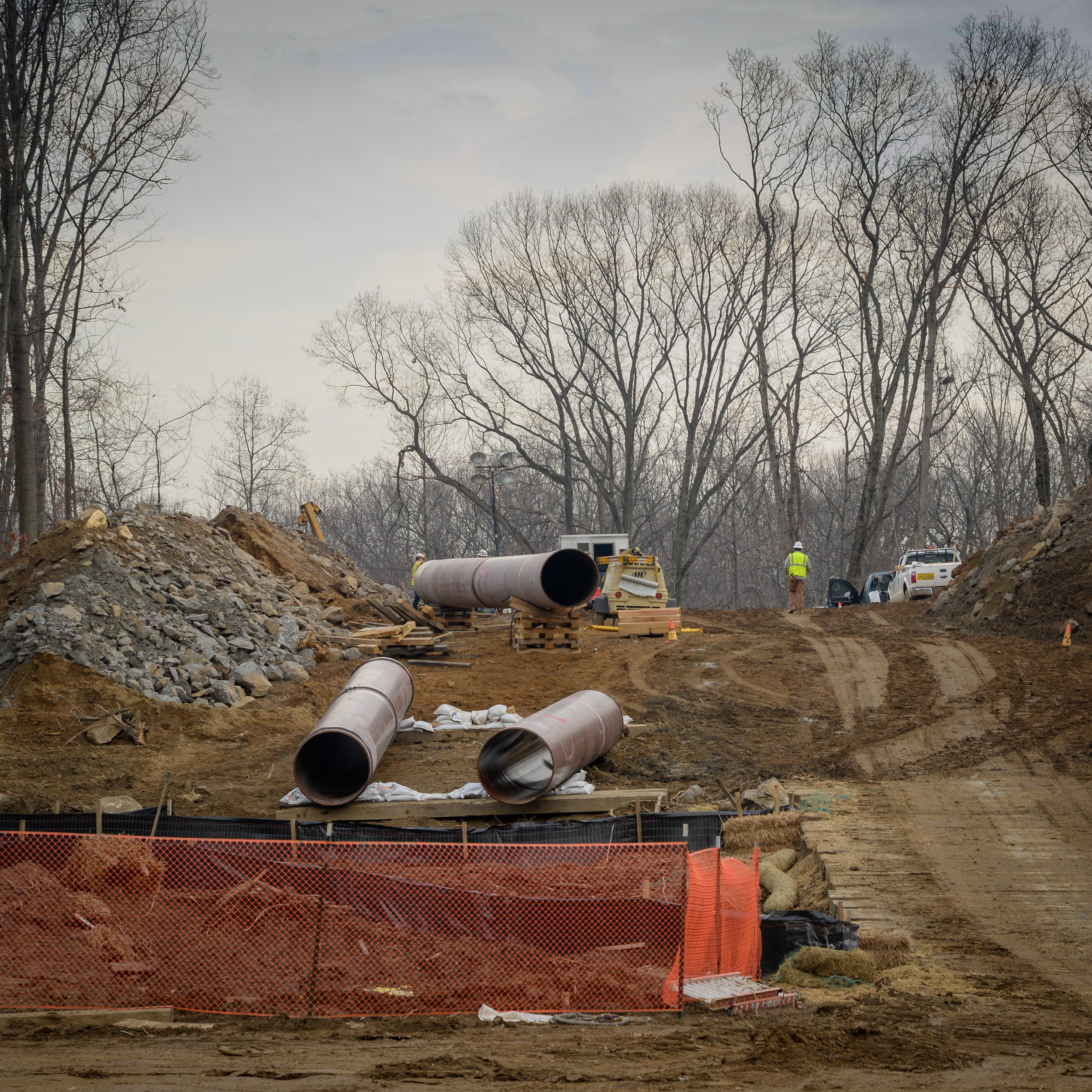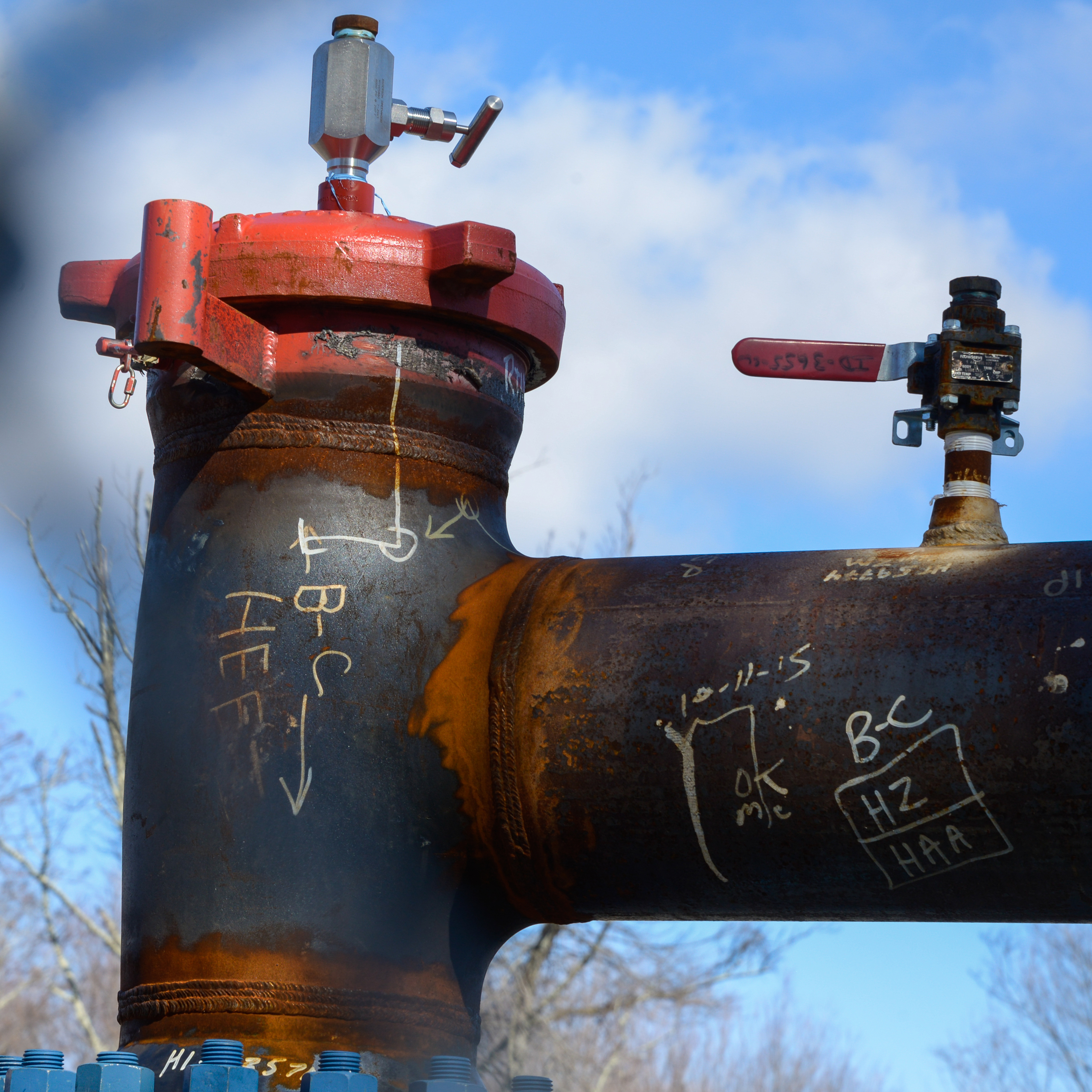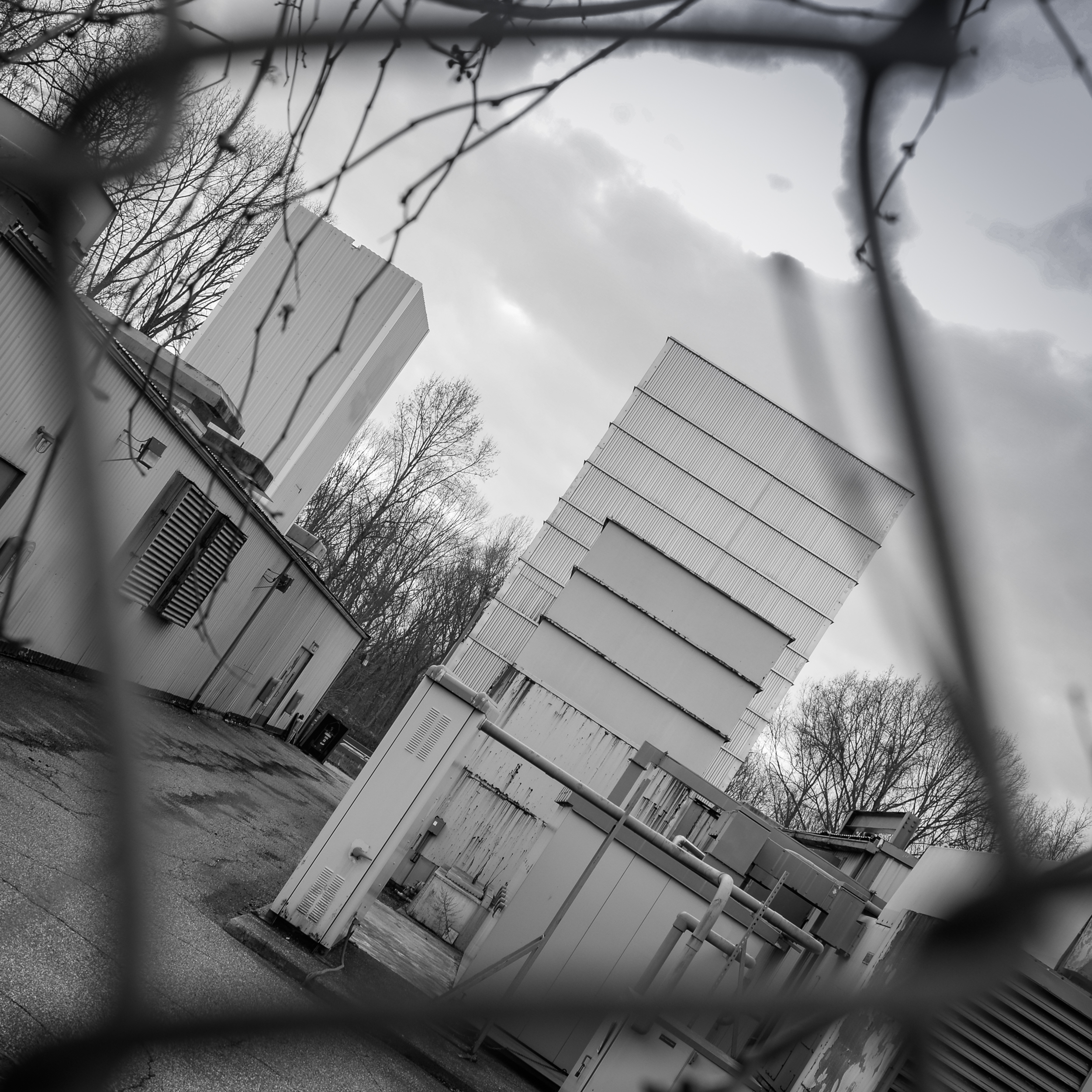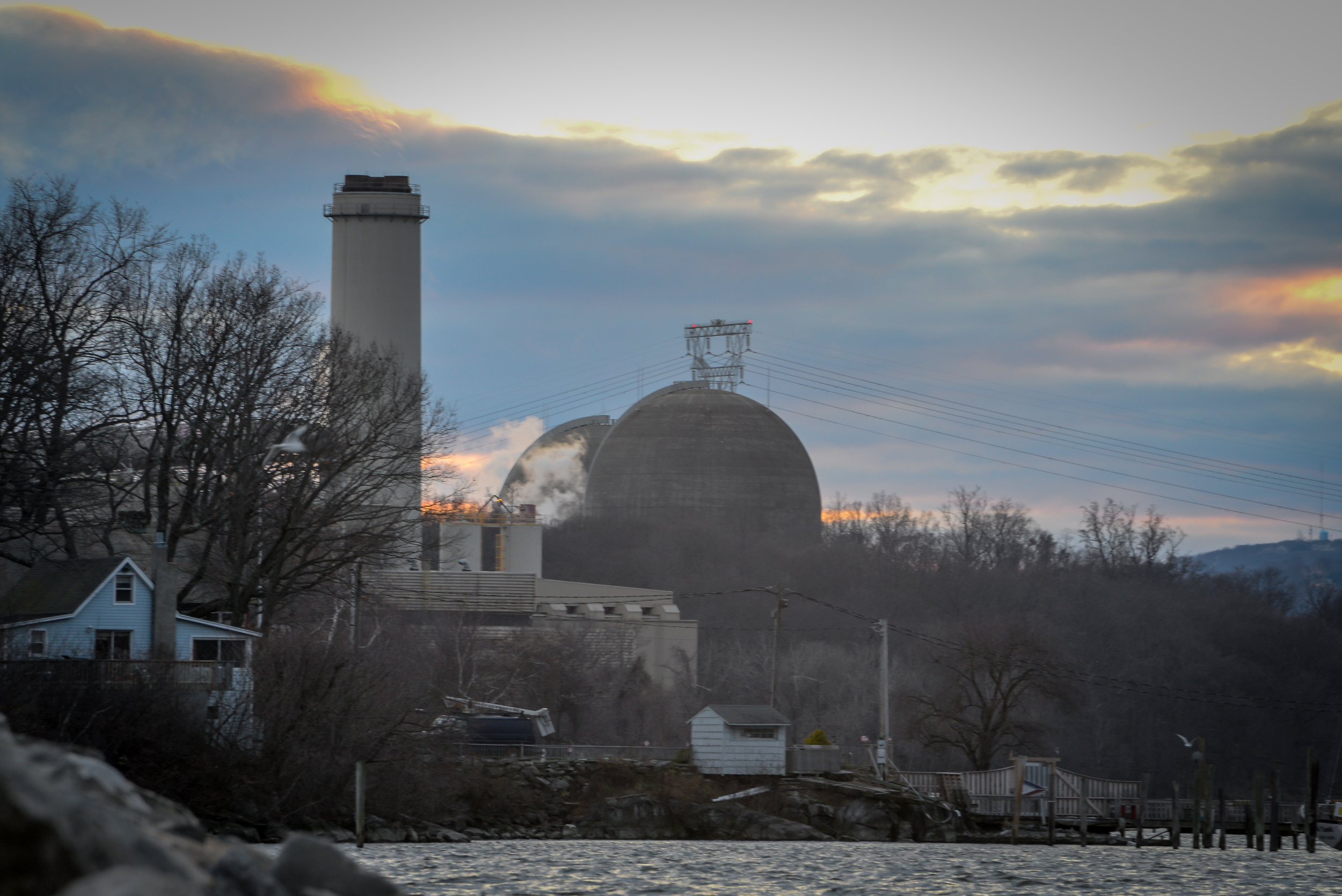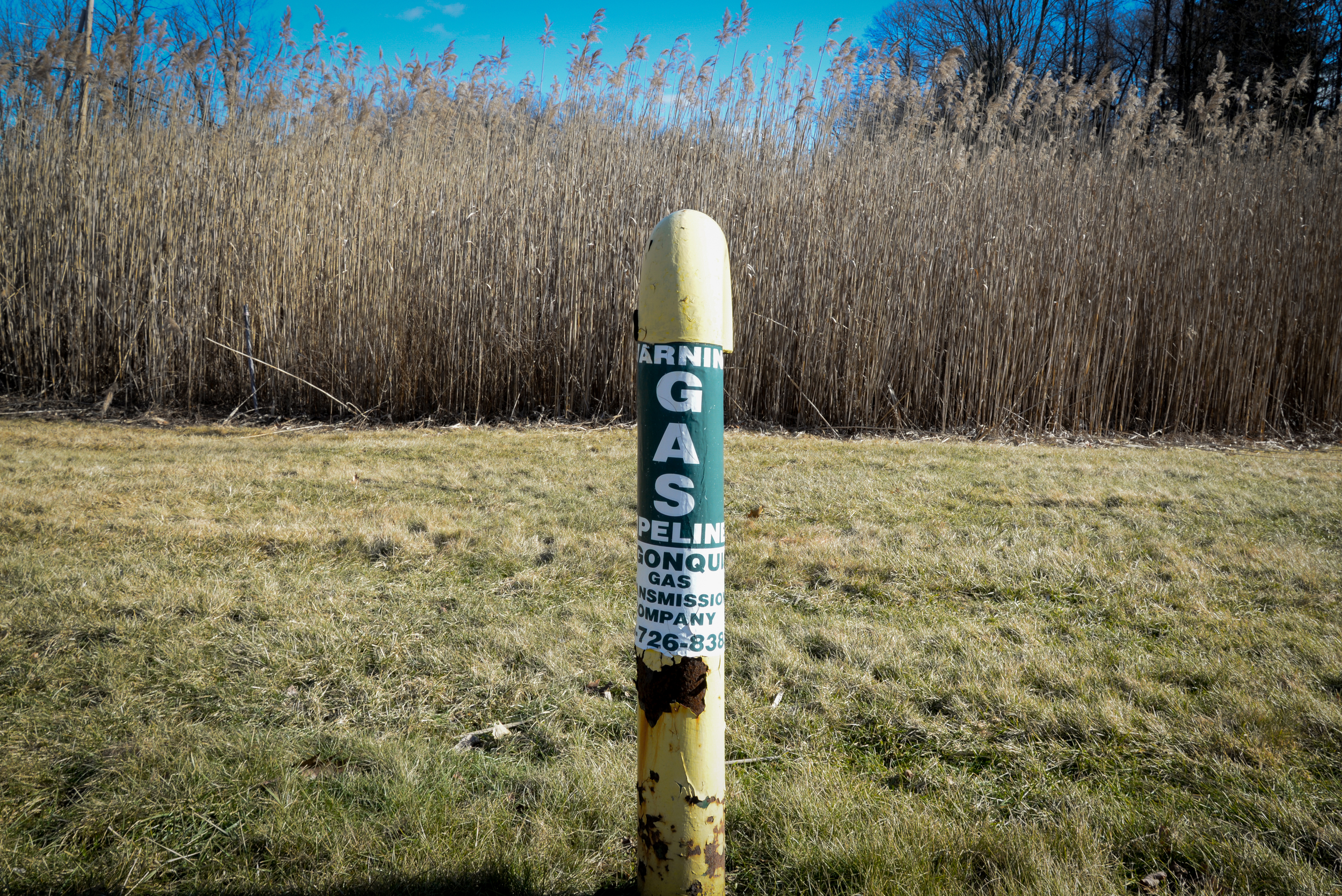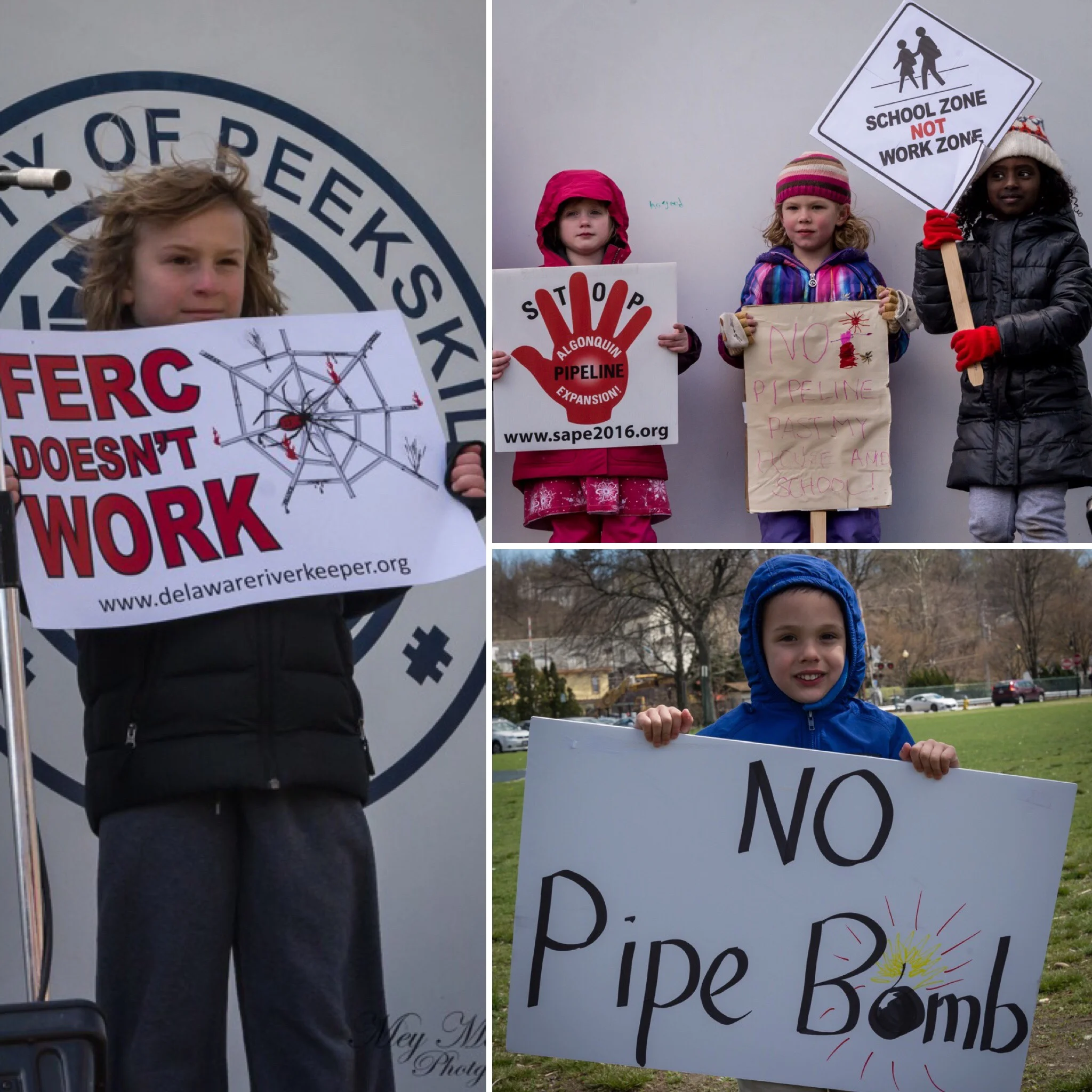#DangerUnderOurFeet
UUFNW Mount Kisco, NY now through April 20th, 2016. Sundays and by appointment only.
Gas pipelines, bomb trains, and nuclear contamination are a danger to Westchester County and the New York metropolitan area.
The Algonquin Incremental Market, or “AIM” project, is the construction of a 42-inch diameter high-pressure gas pipeline to transport fracked methane gas from Pennsylvania’s Marcellus shale formation across the Northeast to the port of Boston. AIM represents a catastrophic risk due to its proximity to both the Indian Point Nuclear Power Plant and to railways along the Hudson.
- Indian Point is 34 miles north of Times Square on the Hudson River; 20 million people live within its 50 mile-radius. Over 40 years, radioactive waste has accumulated in pools behind the reactor domes. On February 6th, 2016 Governor Cuomo reported a new leak where the radioactive tritium in one monitoring well increased by nearly 65,000 percent.
- Across from Indian Point, freight trains full of crude oil thunder along the Hudson River’s west bank. These “bomb trains” carry up to 120 cars, each filled with 30,000 gallons of Bakken Shale crude oil headed for refineries. Three explosive derailments of similar bomb trains occurred in 2015 in the US and Canada; a derailment along the Hudson could potentially ignite the AIM pipeline, while certainly spilling toxic crude oil into the river with tragic harm to its ecosystem.
In each case, the New York region benefits from neither AIM nor the bomb trains, while its citizens bear all the risk. Further compounding these risks is the location of AIM’s control panel in Texas for the local shut-off valve. This distance creates a three-minute delay to reach the control system; however, the nearest physical shut-off valve is 3 miles from Indian Point. In some cases a physical inspection is needed before a valve can be closed, further delaying the response time to a pipeline failure.
The proposed AIM pipeline is a live fuse below the bomb train tracks; across the Hudson River, it emerges to run 105 feet from diesel fuel tanks powering Indian Point’s backup generators; then 400 feet from the local elementary school; through backyards, businesses, religious houses, and public parkland. As authorized by the Federal Energy Regulatory Commission (FERC), private property has been seized by the US Government under “eminent domain,” yet the only apparent use for this methane gas is export to Europe; the Massachusetts attorney general Maura Healy is on record that the Bay State doesn’t need the gas.
Residents of the Hudson Valley and New York City are protesting AIM, organized through such groups as ResistAIM, SAPE2016 and Sane Energy Project. Joining their efforts are New York Governor Andrew Cuomo and local politicians, urging FERC to halt construction of the pipeline while the state health, environmental, and security agencies perform a comprehensive safety assessment of the AIM project. However, state and local officials are seemingly powerless to stop the project; on March 25, 2016, FERC denied New York’s request.

